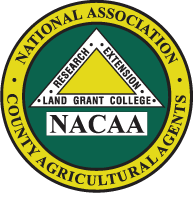IMPROVED ONLINE EVALUATION RESPONSE FOR MULTI-DAY PROGRAMS: A NOVEL SURVEYMONKEY APPROACH
Proposed by: Robert C Goodling, Jr.
Presenters: Goodling Jr., R. C., Extension Associate, Penn State Extension, University Park, PA 16802
Buckley, J., Extension 4-H Faculty, University of Georgia, Athens, GA 30602
Hill, J., County Extension Coordinator, University of Georgia Cooperative Extension, Decatur, GA 30032
Jones, C., Research Associate, Dept. of Animal Science, University Park, PA 16802
Kuipers, T., Area Educator, Community Development Education, University of Wyoming Extension, Cody, WY 82414
Mc Gee, W.W., Senior Extension Educator, Penn State Extension, Dauphin, PA 17018
McAvoy, D., Extension Program Associate, Dept. of Wildland Resources, Utah State University, Logan, UT 84322
Participant evaluation is a critical component to the success of any extension program. Quantifying participant understanding and intended or actual adoption/implementation of presented information can be a daunting task. Online survey systems (such as SurveyMonkey®) have helped improve efficiency and collection of the evaluation responses. Most research suggests that 30% is the average response rate for online surveys. A new methodology was developed and utilized for multi-day events. The methodology allowed participants to evaluate the events of a given day, or events from the previous days. Upon the completion of the event, participants had one week to reply to any section of the survey. Two programs were used to test the success of the methodology: The JCEP Galaxy IV Extension Conference and the Penn State Extension Dairy Nutrition Workshop. The Galaxy IV conference had 2,403 participants, and achieved a 43% survey completion rate and a 64% response rate. The Dairy Nutrition Workshop has utilized online surveys for its typically 400 or more participants since 2003, and averaged only 20% response rate during that time. The response rate to the 2013 Dairy Nutrition Workshop achieved 43% as a result of the methodology. Utilization of this survey methodology achieved greater completion rate of evaluations and thus better assessment of the respective programs, and will be used in future programmatic efforts.
